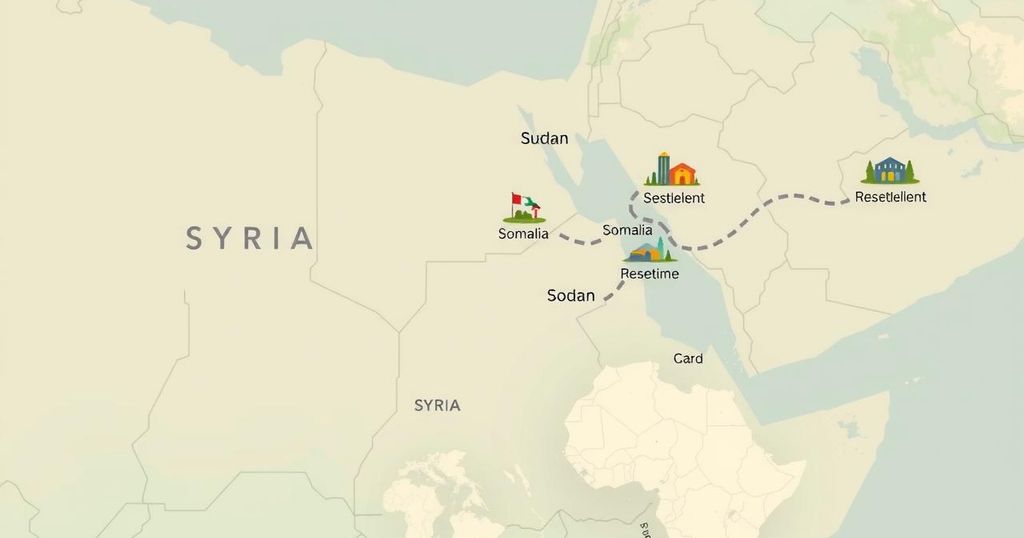The Trump administration and Israel are exploring Sudan, Somalia, and Syria for potential resettlement of Palestinians from Gaza as a part of efforts to address the conflict with Hamas. These discussions have attracted criticism, being labeled by some as ethnic cleansing, while officials in the involved countries have denied outreach regarding this issue.
Sources indicate that the U.S. administration under President Trump, along with Israel, has initiated discussions with Sudan, Somalia, and Syria as potential resettlement locations for Palestinians currently in Gaza. This exploration of resettlement options aims to facilitate an end to the ongoing conflict between Israel and Hamas, as well as to begin rebuilding efforts in the devastated region.
President Trump emphasized that no Palestinians are being forcibly expelled, expressing hope during a recent meeting with the Irish Prime Minister. He reiterated his vision of transforming Gaza into a more livable area, akin to the “Riviera of the Middle East,” and highlighted the importance of relocating a substantial Palestinian population elsewhere to foster stability and development in the region.
Official sources relayed that U.S. and Israeli diplomatic channels have reached out to governments in Sudan and Somalia. Senior Israeli officials are advocating for Palestinian migration from Gaza, a sentiment echoed by Trump’s recent statements. Furthermore, discussions regarding Syria involve attempts at outreach to the country’s interim leadership, although there are indications of limited responsiveness from Syrian officials regarding these proposals.
Somalian Ambassador to the U.S., Dhahir Hassan, refuted claims of U.S. or Israeli approaches to his government about relocating Palestinians and raised concerns that such unverified reports could inadvertently fuel extremist recruitment in the region. The Sudanese government has yet to provide any official comments on these discussions as well.
On the matter of resettlement, Trump posited that Palestinians could voluntarily relocate, suggesting that their departure may be permanent. His administration has faced widespread criticism, with many labeling the resettlement proposals as a form of ethnic cleansing, prompting Arab governments to endorse alternatives for Gaza’s reconstruction that were subsequently dismissed by the U.S. and Israel.
As tensions persist, Syria’s new leadership reiterated condemnation of Trump’s remarks, calling them a serious misstep. Advocacy groups urge direct engagement with Syria’s interim government and a strategic plan to address security challenges without exacerbating the region’s current turmoil. In the meantime, the Israeli military continues to conduct airstrikes in Syria, complicating diplomatic efforts in the area.
Both U.S. officials and Israeli spokespersons have refrained from commenting on these sensitive topics following multiple requests from media outlets, leaving the fate of Palestinians in Gaza amid ongoing conflict highly uncertain. Trump’s senior advisor recently reflected his belief in the potential for a humanitarian approach to addressing the plight of millions of displaced Palestinians across the region.
The discussions regarding the potential relocation of Palestinians from Gaza to countries like Sudan, Somalia, and Syria stem from geopolitical efforts to address ongoing conflict and humanitarian crises. These suggestions have been met with widespread criticism, reflecting complex regional dynamics and ethical considerations surrounding such proposals. As the situation unfolds, the response of affected governments and the broader implications for regional stability remain critical points of concern for international observers and local populations alike.
Original Source: www.cbsnews.com






